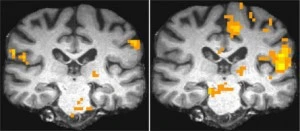Individualized Acupuncture Found Beneficial for Gulf War Illness (Study)
One of the areas where practitioners see great benefits of Chinese Medicine treatment (acupuncture, herbal medicine, medical qi gong, tuina, etc.) is in complex systemic illnesses or syndromes. In part this is because Chinese Medicine always looks at patients as individuals with complex relationships internally and externally (diet, weather, etc.). In general, the western diagnosis even for relatively straightforward conditions, asthma as an example, is largely useless in Chinese Medicine. There are often 5 or more underlying diagnoses from a Chinese Medicine perspective that could lead to a western medical condition or conditions. For more on this generally, see "What Does Acupuncture Treat, Treating the Cause and Not the Symptoms". This is helpful when people come with a range of unexplained, or poorly explained, symptoms such as in the case of gulf war illness.
[caption id="attachment_1887" align="alignright" width="300"] Areas of Damage Thought To Indicate Gulf War Illness[/caption]
Areas of Damage Thought To Indicate Gulf War Illness[/caption]
Gulf war illness according to the US Department of Veteran Affairs is "a prominent condition affecting Gulf War Veterans with a cluster of medically unexplained chronic symptoms that can include fatigue, headaches, joint pain, indigestion, insomnia, dizziness, respiratory disorders, and memory problems." This, for better or worse, is what we see as Chinese Medicine practitioners to varying degrees nearly every day. And when you have a composite of symptoms like this you need someway to approach rather than an onslaught of medications which may help one or a few aspects and contribute to the worsening of others. This is where Chinese Medicine diagnosis techniques and theory become very valuable.
Accordingly, the US government provided funding for a study looking at the effects of acupuncture on gulf war illness using individualized protocols. This type of study is crucial for the true advocacy of Chinese Medicine as it is practiced. Studies done by more common "western methods" where you take a set of points for a certain illness and treat a group of people and then look at the outcomes, still often come out well and have some value clinically and advocacy wise, but they deny how Chinese Medicine is actually practiced. And if generations of practitioners are correct, you will always get better results the better you understand the patient, the better your diagnostic skills are, and the better you choose the appropriate range of techniques to help resolve the diagnostic imbalances. All the more so, the more complicated their range of symptoms are.
In the study I'm exploring today researchers from the New England School of Acupuncture, U of Florida Gainesville, UT Austin, and the Boston Veterans Healthcare System recruited 104 patients who were diagnosed with gulf war illness. One group received biweekly treatments for 6 months, another group were placed on a 2 month waitlist and then given weekly acupuncture treatments for 4 months. Using the SF-36 scale primarily and the McGill pain scale secondarily the effects of treatment were analyzed.
Another aspect of this study that is important is the time frame. Chinese Medicine can take time to work as it works deeply and systematically in the body. In many cases this means, however, that when the patients issues are resolved, they are resolved completely requiring no life time of medications or further treatment. It is important that studies are done that give realistic time frames, particularly for complicated conditions. Many studies are done with daily treatments over a couple weeks, for example, which is both impractical in true clinical reality outside of a hospital/acute care setting.
In this particularly study the researchers found significant improvement in the patients with gulf war illness. The biweekly over 6 months treatment group had statistically better outcomes than the waitlist and then weekly acupuncture group. The researchers concluded that "individualized acupuncture treatment of sufficient dose appears to offer significant relief of physical disability and pain for veterans with Gulf War Illness."
While the researchers didn't approach this avenue, from clinical experience and any number of other clinical studies we could reasonably assume that the patients improved with other psychological and digestive aspects as well - among their other systemic issues. Further studies should be done to more deeply explore the systemic changes besides pain - although all things considered even if that were all that improved that would still be considerable considering the other western options for treatment that are available.
tag @yinyanghouse for questions/comments